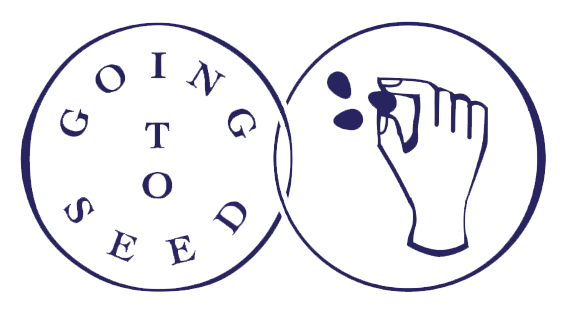by Julia Dakin
Every year local seed libraries distribute hundreds of thousands of seed packets to their communities, but on average less than 5% of recipients save and return seeds to the library. As a result, seed libraries are often dependent on commercially produced seeds. These non-locally-adapted seeds often require intensive care and resources, make growing local food stressful and expensive, and discourage new gardeners from trying again after a failed attempt.
Using local seeds, on the other hand, will contribute to a higher success rate, especially for growers living in challenging gardening areas. Successful gardeners mean successful seed savers who can contribute seeds back to their community, breaking the cycle of failure and dependence.
In 2023, Anna Mieritz and I facilitated community seed projects in three Northern California communities. Despite initial enthusiasm, the seed return rate was consistently low (about 10%) and not enough to sustain the projects. Participants said they wanted more information throughout the year.
Our 2024 model incorporates that feedback and expands to new communities. In December last year, we received funding from the Foundation for Sustainability and Innovation and a private donor to expand the project.
How it works: At events, farmers markets, presentations, and now online in certain communities, we encourage interested gardeners to choose a single crop to focus on for that year. We give them a generous packet of diverse seeds to plant and sign them up for a monthly email for their crop. The emails help guide and engage participants with important planting dates, growing, selection, and seed saving instructions, cultural and culinary information about the crop, and shared photos from other growers. Participants can also join a monthly Zoom call to answer questions.
I consistently hear from people who say how happy they are to participate: “I wanted to contribute to the seed library, I just didn’t know how [to grow for seed]. Thank you!”
Mendocino County chose ten crops including winter and summer squash, foggy-summer -adapted melons, beans, cucumbers, kale, and corn, and has two hundred participants so far.

The East Bay Seed Project, in partnership with Urban Tilth, East Bay Local Seeds and Richmond Grows Seed Lending Library chose runner beans, winter squash, cucumbers and melons. We’ve gathered three times for presentations, squash tasting, and cleaning seeds.

In their first year, the South Los Angeles Seed Circle (led by Dominique Pearson) chose okra, tomatoes, mustard greens, black-eyed peas and watermelon. Their chosen crops are rooted in African American heirlooms, and they are excited to reintroduce these precious plants back into the community.

A sister project, Seeds for Sharing, led by Kay Everts in Portland chose the Astronomy Domine sweet corn, runner beans, and winter squash.
We look forward to supporting these projects, developing them as a model for community seed sovereignty, and seeing the quality and quantity of local seeds grow in each community.
Interested to implement this model in your community next year? If so, reach out to me at Julia@goingtoseed.org. For more details, check out an example page here and a video from a presentation I gave to a local gardening group last week.
If you like this model and want to see it grow, consider making a donation to Going to Seed. Our goal is to create a model that can be expanded into any community, but we need your help to make that happen. Thank you!

